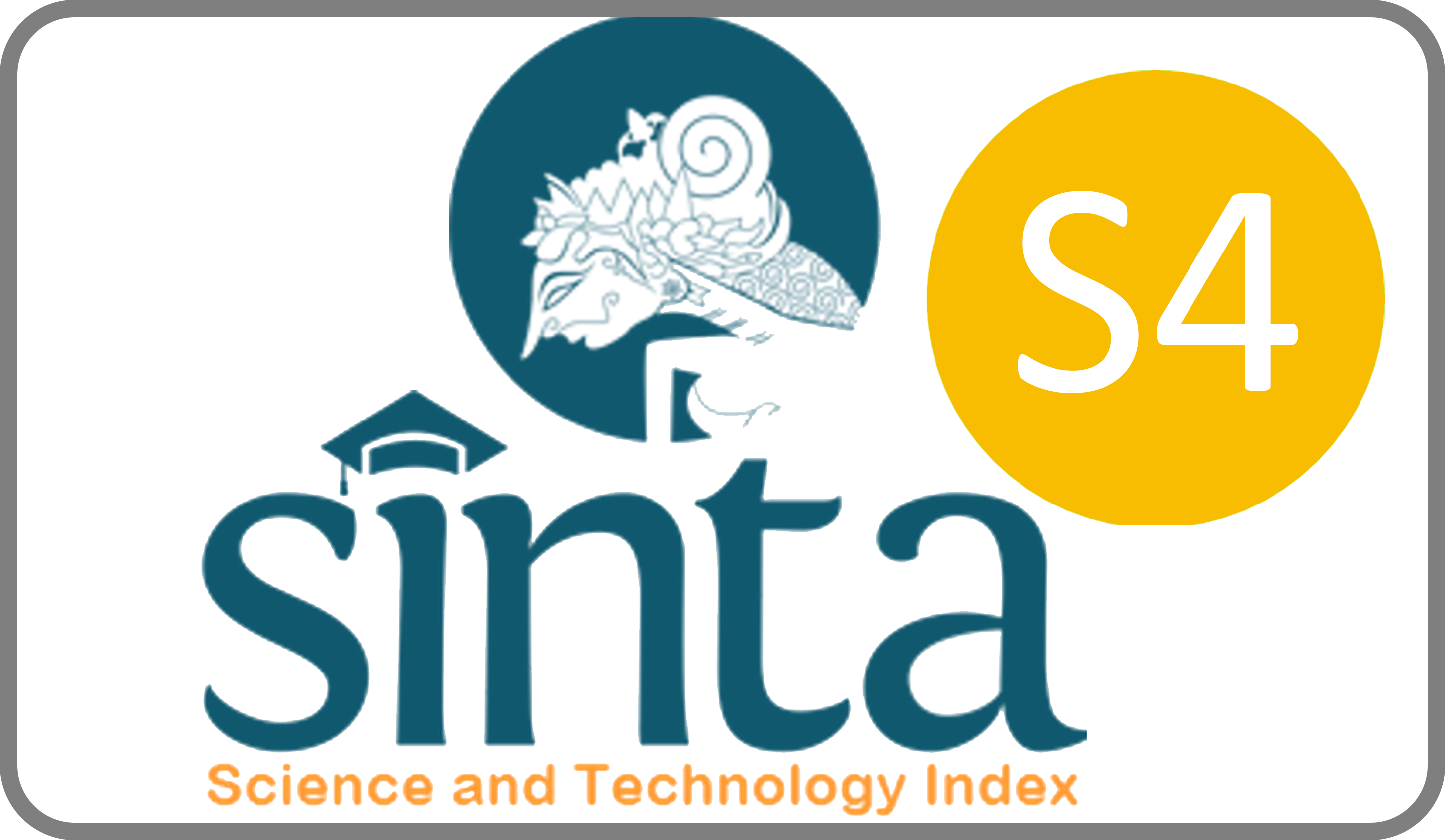IMPROVING STUDENT ACADEMIC RESILIENCE AT SMAN X SURABAYA
Downloads
Increasing academic resilience is very important because resilience is how individual go through challenges and face difficult experiences. Students who have high academic resilience are those who remain motivated for academic achievement and high academic performance even though they are faced with stressful situations and conditions that threaten their performance. The aim of this community service is to increase the academic resilience of SMAN X Surabaya students by providing materials and sharing. The method used to increase the academic resilience of SMAN X students is by providing material and sharing. Students of SMAN X were assessed for their academic resilience before and after giving material and sharing to find out changes in students' academic resilience scores. After pre-test, students were given the material about academic resilience, and at the end of it, students were asked to form a group that's been determined and with one facilitator in each group that will guide them. In that group students were asked to share their experiences in dealing with challenging situations they've been through. Each group then summarize what they've learned from the story of every student within the group, after that each group then asked to present what they've learned within their group to the class. The participants were 34 students of SMAN X Surabaya. Results of test shows there was an increase in the academic resilience score from the average score before providing material and sharing of 112 to 116. These results mean that providing material and sharing increased the academic resilience of students at SMAN X Surabaya. the students were more likely to seek help, closer to their classmates, and more calm when faced with problem.
Armstrong, A. J., Holmes, C. M., & Henning, D. (2020). A changing world , again . How Appreciative Inquiry can guide our growth. Social Sciences & Humanities Open, 2(1). https://doi.org/10.1016/j.ssaho.2020.100038
Cassidy, S. (2015). Resilience building in students: The role of academic self-efficacy. Frontiers in Psychology, 6(NOV), 1–14. https://doi.org/10.3389/fpsyg.2015.01781
Cassidy, S. (2016). The Academic Resilience Scale (ARS-30): A new multidimensional construct measure. Frontiers in Psychology, 7(NOV), 1–11. https://doi.org/10.3389/fpsyg.2016.01787
Çelik, D. A., Çetin, F., & Tutkun, E. (2015). The Role of Proximal and Distal Resilience Factors and Locus of Control in Understanding Hope, Self-Esteem and Academic Achievement among Turkish Pre-adolescents. Current Psychology, 34(2), 321–345. https://doi.org/10.1007/s12144-014-9260-3
Cooperrider, D. L., & Avital, M. (2004). Introduction: Advances in Appreciative Inquiry - Constructive Discourse and Human Organization. Advances in Appreciative Inquiry, 1. https://doi.org/10.1016/S1475-9152(04)01017-8
Dwiastuti, I., Hendriani, W., & Andriani, F. (2022). The Impact of Academic Resilience on Academic Performance in College Students During the Covid-19 Pandemic. KnE Social Sciences, 2021(ICoPsy 2021), 25–41. https://doi.org/10.18502/kss.v7i1.10198
Grant, S., & Humphries, M. (2006). Critical evaluation of appreciative inquiry: Bridging an apparent paradox. Action Research, 4(4), 401–418. https://doi.org/10.1177/1476750306070103
Hidayati, N. (2020). BINA KELUARGA SETARA UNTUK MENINGKATKAN KETAHANAN KELUARGA. Jurnal Layanan Masyarakat, 4(1), 122–127. https://doi.org/10.20473/jlm.v4i1.2020.122-127
Kalaivani, D. (2021). Academic Resilience among Students: A Review of Literature. International Journal of Research and Review, 8(6), 360–369. https://doi.org/10.52403/ijrr.20210646
Kwek, A., Bui, H. T., Rynne, J., & So, K. K. F. (2013). The impacts of self-esteem and resilience on academic performance: An investigation of domestic and international hospitality and tourism undergraduate students. Journal of Hospitality and Tourism Education, 25(3), 110–122. https://doi.org/10.1080/10963758.2013.826946
Lakens, D. (2013). Calculating and reporting effect sizes to facilitate cumulative science: A practical primer for t-tests and ANOVAs. Frontiers in Psychology, 4(November), 1–12. https://doi.org/10.3389/fpsyg.2013.00863
Martin, A. (2002). Motivation and academic resilience. Australian Journal of Education, 46(I), 34–49.
Martin, A. J., & Marsh, H. W. (2009). Academic resilience and academic buoyancy: Multidimensional and hierarchical conceptual framing of causes, correlates and cognate constructs. Oxford Review of Education, 35(3), 353–370. https://doi.org/10.1080/03054980902934639
Shani, A. B., & Coghlan, D. (2021). Action research in business and management: A reflective review. Action Research, 19(3), 518–541. https://doi.org/10.1177/1476750319852147
Shuayb, M. (2014). Appreciative Inquiry as a Method for Participatory Change in Secondary Schools in Lebanon. Journal of Mixed Methods Research, 8(3), 299–307. https://doi.org/10.1177/1558689814527876
Smith, B. W., Dalen, J., Wiggins, K., Tooley, E., Christopher, P., & Bernard, J. (2008). The brief resilience scale: Assessing the ability to bounce back. International Journal of Behavioral Medicine, 15(3), 194–200. https://doi.org/10.1080/10705500802222972
Verleysen, B., Lambrechts, F., & Van Acker, F. (2015). Building Psychological Capital With Appreciative Inquiry: Investigating the Mediating Role of Basic Psychological Need Satisfaction. Journal of Applied Behavioral Science, 51(1), 10–35. https://doi.org/10.1177/0021886314540209
Ye, W., Strietholt, R., & Blömeke, S. (2021). Academic resilience: underlying norms and validity of definitions. Educational Assessment, Evaluation and Accountability, 33(1), 169–202. https://doi.org/10.1007/s11092-020-09351-7
Copyright (c) 2023 Fikri Hadyan Kusuma, Cholicul Hadi, Maria Eko Sulistyowati

This work is licensed under a Creative Commons Attribution-ShareAlike 4.0 International License.
JLM by Unair is licensed under a Creative Commons Attribution-ShareAlike 4.0 International License.
1. The journal allows the author to hold the copyright of the article without restrictions.
2. The journal allows the author(s) to retain publishing rights without restrictions
3. The legal formal aspect of journal publication accessibility refers to Creative Commons Attribution Share-Alike (CC BY-SA).
4. The Creative Commons Attribution Share-Alike (CC BY-SA) license allows re-distribution and re-use of a licensed work on the conditions that the creator is appropriately credited and that any derivative work is made available under "the same, similar or a compatible license”. Other than the conditions mentioned above, the editorial board is not responsible for copyright violation.


















